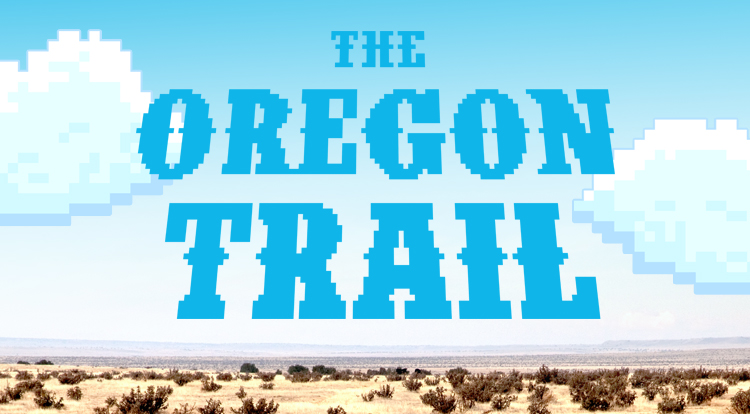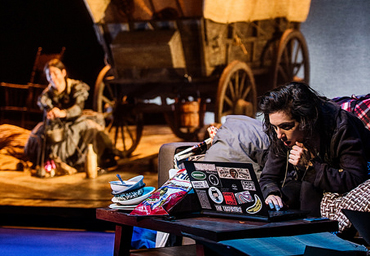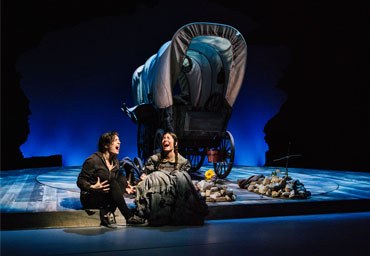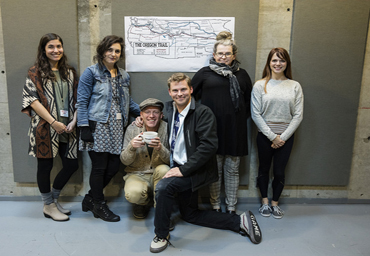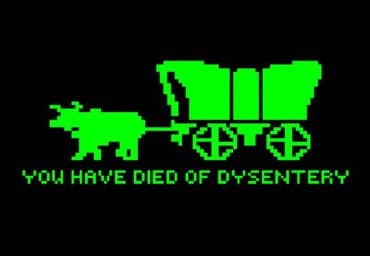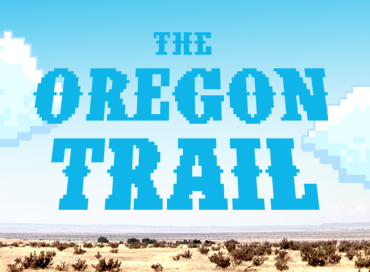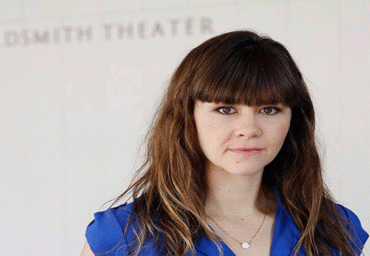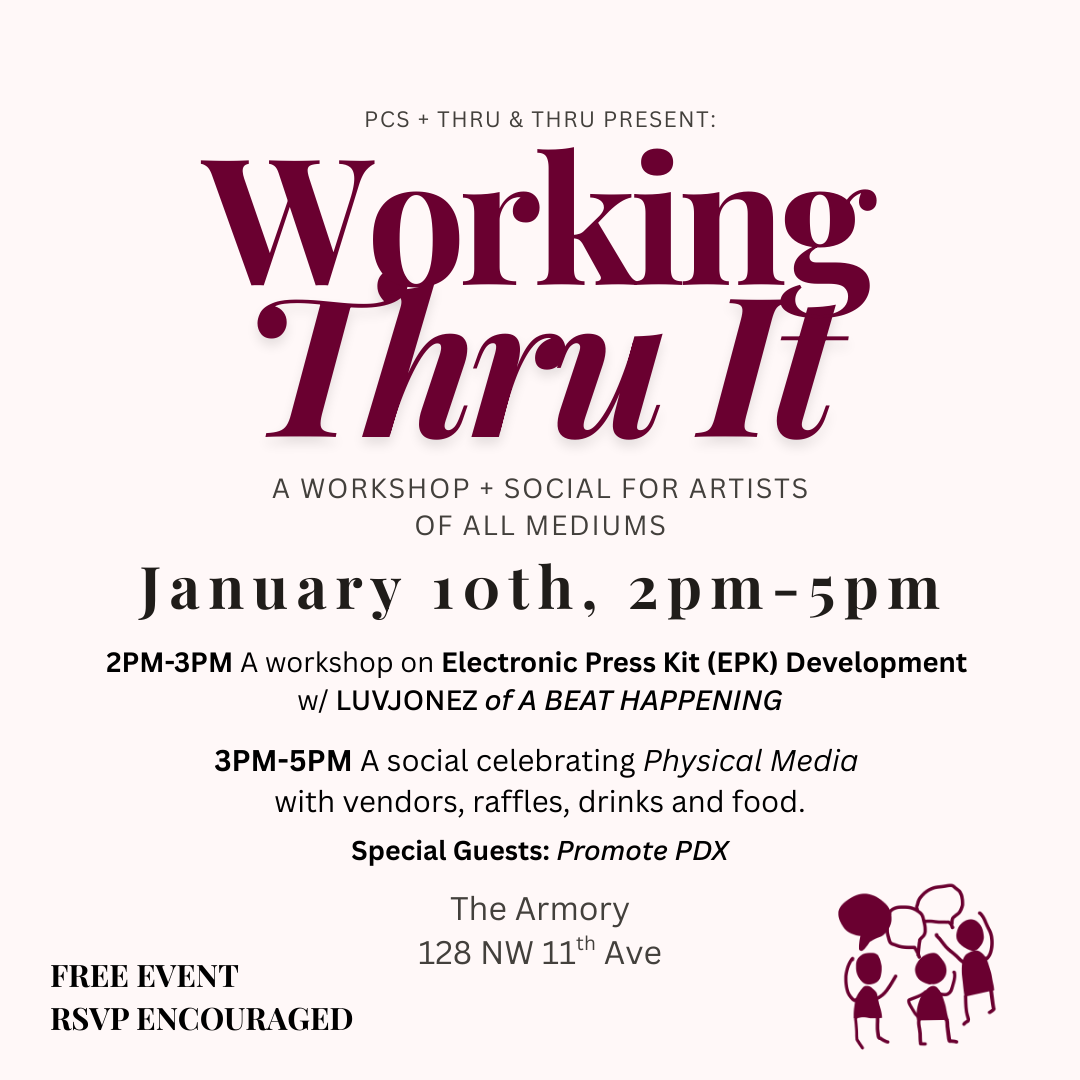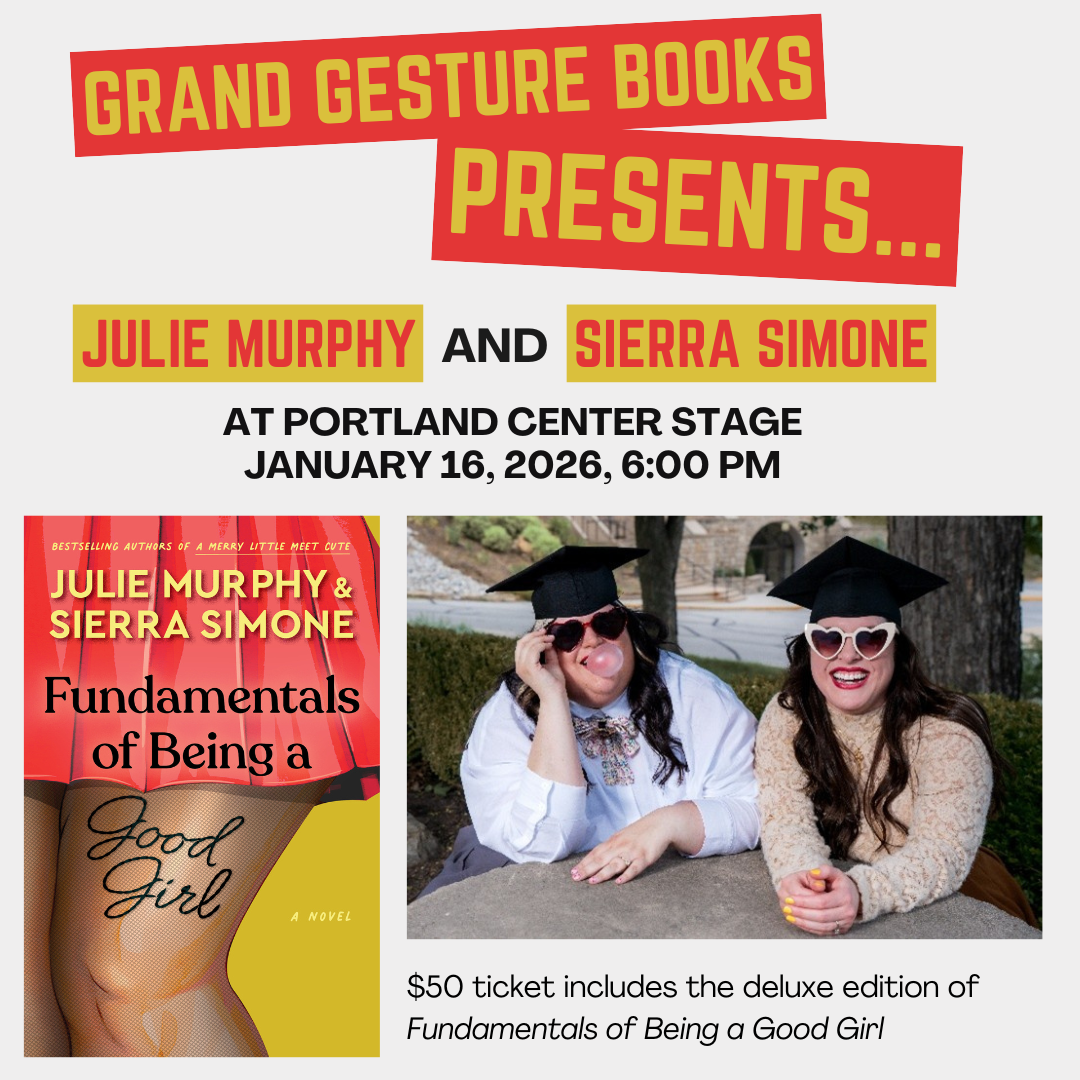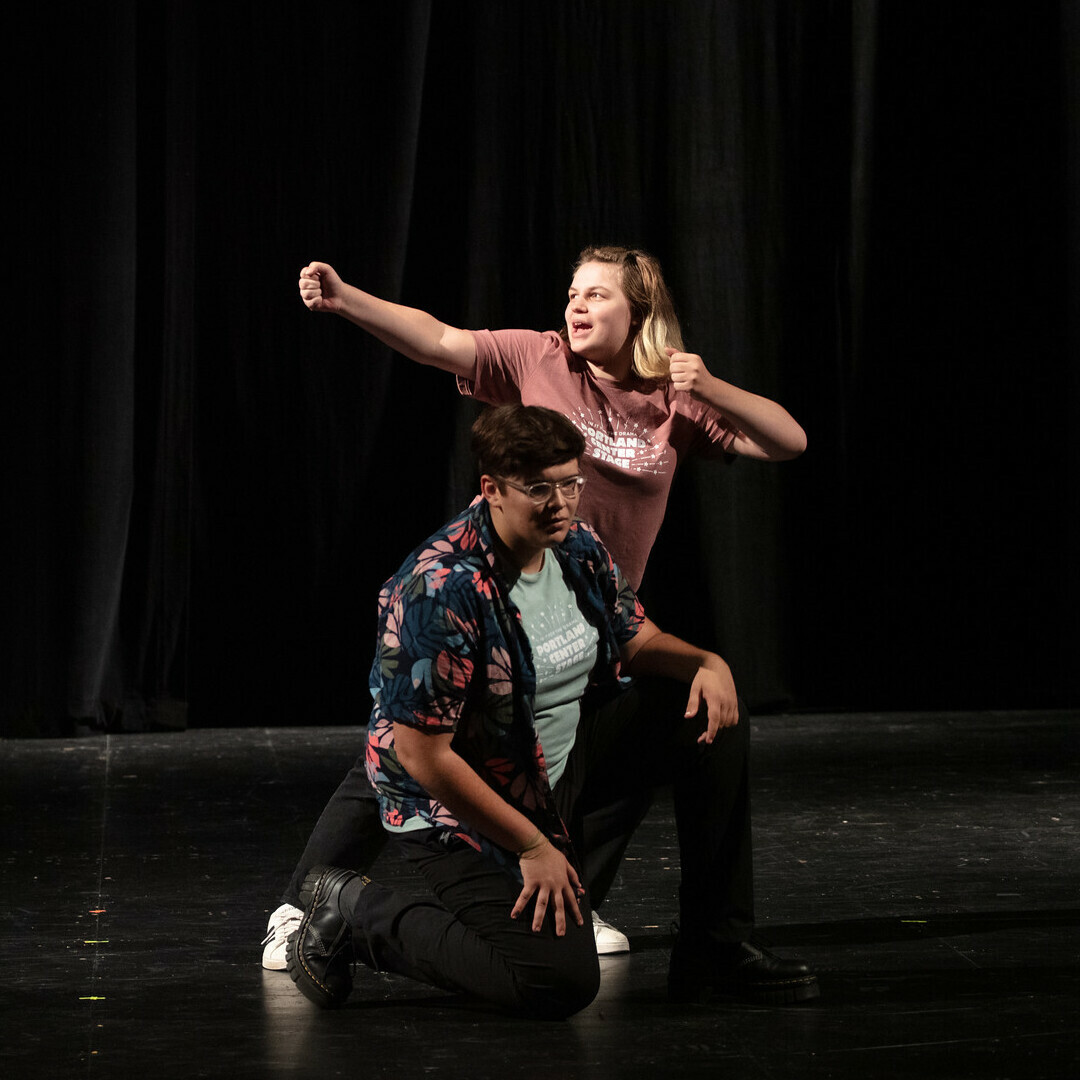Resource Guide for Educators: Women's Voices on The Oregon Trail
Women’s Voices on the Trail
Collected From Diaries from the Oregon Trail
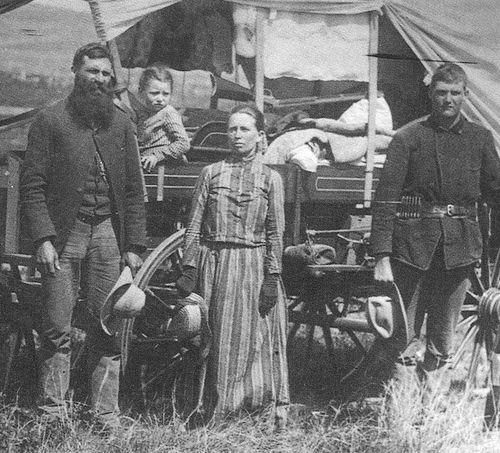
On the sadness of leaving home:
Some friends had spent the night with us and others arrived at daylight. All places of business and the schools were closed during the forenoon, and everybody came to say good-bye to us. From early morning till ten o’clock they came. The house and yard and streets were crowded with people. Friends and schoolmates were crying all around us. The sad farewells were all spoken. We took a long last look at all, then closed our eyes on the scene and moved forward. Their wails reached us as we moved away.
...The saddest parting of all was when my mother took leave of her aged and sorrowing mother, knowing full well that they would never meet again on earth.
Martha Gay Masterson, age 13 in 1851
Who does not recollect their first night when started on a long journey. The well-known voices of our friends still ringing in our ears. The parting kiss still warm upon our lips and the last separating word “farewell!” sinks deeply into the heart.
Lodisa Frizzell, 1852
On the discomfort of travelling by wagon:
The motion of the wagons made us all sick and it was weeks before we got used to the seasick motion. Rain came down and required us to tie down the wagon covers, and so increased our sickness by confining the air we breathed.
Catherine Sager Pringle, age 9 in 1844
On abandoning possessions along the trail:
At a meeting of the men of the wagon train it was decided to throw away every bit of surplus weight so that better speed could be made…A man named Smith had a wooden rolling pin that it was decided was useless and must be abandoned. I shall never forget how that big man stood there with tears streaming down his face as he said, ‘Do I have to throw this away? It was my mother’s. I remember she always used to roll out her biscuits, and they were awful good biscuits.’
Lucy Ann Henderson Deady, age 11 in 1846
On clothing:
I wore a dark woolen dress which served me almost constantly throughout the whole trip. The wool protected me from the sun’s rays and penetrating prairie winds. It also economized in laundering which was a matter of no small importance, the chief requisite water being sometimes brought from miles away.
Catherine Haun, 1849
On storms:
It was on the Platte River in Nebraska. We were in camp on the bank of the river when it came on. The wind blew a hurricane! Thunder roared and lightning flashed! It was dark as Egypt. The rain poured like it was being emptied from buckets. I will never forget that night! Every tent was blown down. No one was seriously hurt, though a babe was narrowly missed by a falling tent pole. The men chained the wagons together to hold them from being blown into the river. Our camp belongings were blown helter skelter over the country around about and our stock was stampeded ‘till it took all the next day to get them rounded up.
Mary Elizabeth Munkers Estes, age 10 in 1846
It rains and snows. We start this morning around the falls with our wagons. I carry my babe and lead or rather carry another through the snow, mud and water almost to my knees. I went ahead with my children and I was afraid to look back behind me for fear of seeing the wagons turned over in the mud. My children gave out with cold and fatigue and could not travel. And the boys had to unhitch the oxen and bring them and carry the children on to camp. I was so cold and numb that I could not tell by feeling that I had any feet at all.
Elizabeth Dixon Smith, 1847
We had a dreadful storm of rain and hail last night, and very sharp lightning, it killed two oxen for one man…The rain beat into the wagon so that every thing was wet, and in less than two hours, the water was a foot deep all over our camping ground…all hands had to crowd into the wagons and sleep in wet beds, with their wet clothes on, without supper…
Amelia Stewart Knight, 1853
On accidents:
We had by this time got used to climbing in and out of the wagon when in motion. When performing this feat that afternoon my dress caught on an axle helve and I was thrown under the axle wheel, which passed over and badly crushed my limb before father could stop the team. He picked me up and saw the extent of the injury when the injured limb hung dangling in the air. In a broken voice he exclaimed: “My dear child, your leg is broken all to pieces!”
Catherine Sager Pringle, age 9 in 1844
On dust:
Very dusty roads. You in the States know nothing about dust. It will fly so that you can hardly see the horns of your oxen. It often seems that the cattle must die for want of breath. And then in our wagons, such a spectacle. Beds, clothes and children completely covered.
Elizabeth Smith Geer, 1847
It’s very warm; the oxen all have their tongues out panting. George took the wash pan and a bucket of water and let all our team wet their tongues and he washed the dust off their noses; some laughed at him but the oxen seemed very grateful.
Kit Belknap, 1848
Got breakfast over a fashion. Sand all around ankle deep; wind blowing; no matter, hurry it over. Them that eat the most get to eat the most sand.
Amelia Stewart Knight, 1853
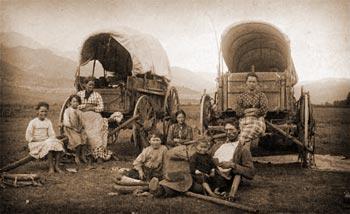
On the difficulty for women:
Their mothers had the families directly in their hands and were with them all the time. Especially during sickness. I remember one girl in particularly about my own age that died and was buried on the road. Mothers on the trail had to undergo more trial and suffering than anybody else.
Martha Ann Morrison, age 13 in 1844
Camille and I both burnt our arms very badly while washing. They were red and swollen and painful. Our hands are blacker than any farmers. And I do not see that there is any way of preventing it. For everything has to be done in wind and sun.
Rebecca Ketchum, 1853
I saw a woman on a very poor horse with a little child in her lap and one strapped on her behind and two or three tied on another horse. I felt thankful and imagined I was only on a picnic.
Francis Sawyer, 1854
I have cooked so much out in the sun and smoke that I hardly know who I am and when I look into the little looking glass I ask, “Can this be me?”
Miriam Davis, 1855
Although there is not much to cook, the difficulty and inconvenience in doing it amounts to a great deal. Then there is washing to be done and light bread to make and all kinds of odd jobs. Some women have very little help around the camp. Being obliged to get the wood and water, make campfires, unpack at night and pack up in the morning.
Helen Carpenter, 1857
I would make a brave effort to be cheerful and patient until the camp work was done. Then starting out ahead of the team and my men folks, when I thought I had gone beyond hearing distance, I would throw myself down and give way like a child to sobs and tears. Wishing myself back home with my friends and chiding myself for consenting to take this wild goose chase.
Lavinia Porter, 1860
On children orphaned on the trail:
Application has been made for us to take an orphan family of seven children, as they have not a relative in the company. What we shall do I cannot say; we cannot see them suffer, if the Lord casts them upon us.
Narcissa Whitman of the Whitman Mission, 1844
I carried a little motherless babe five hundred miles and when we would camp I would go from camp to camp in search of some good, kind, motherly woman to let it nurse. And no one ever refused when I presented it to them.
Margaret W. Inman, 1852
On disease and death:
The tent was set up, the corpse laid out, and the next morning we took the last look at our mother’s face. The grave was near the road; willow brush was laid in the bottom and covered the body, the earth filled in – then the train moved on. Her name was cut on a headboard, and that was all that could be done. So in twenty-six days we became orphans. Seven children of us, the oldest fourteen and the youngest a babe.
Catherine Sager Pringle, age 9 in 1844
There was no tombstone – why should there be – the poor husband and orphans could never hope to revisit the grave and in the world it was just one of the many hundreds that marked the trail of the argonaut.
Catherine Haun, 1849
…our dear little Willie was taken sick with Direah…he could not speak for several days before he died but would take a cup and hold it out for water was the only sign he would make, after nine days sickness he died leaving us in a wild desart place to mourn over him he is buried on the side of a hill under a lone cedar tree on a Burnt river.
Catherine Scott Coburn, age 13 in 1852 describing the death of her 4-year-old brother
There was an epidemic of cholera, think it was caused from drinking water from the holes dug by campers. All along was a graveyard most any time of day you could see people burying their dead. Some places five or six graves in a row. It was a sad sight. No one could realize it unless they had seen it.
Jane D. Kellogg, 1852
On the hardship at the end of the trail:
We came…over the Cascade by the newly opened Barlow route, and it was a fierce route. The oldest child…had died before we started, and father died on the way across the plains, so when we reached Portland our family consisted of my mother and nine children…Mother had no money and had nine hungry mouths to feed in addition to her own, so she would go to the ships that came and get washing to do.
Elvina Apperson Fellows, 1847, age 10
My most vivid recollection of that first winter in Oregon is of the weeping skies and of mother and I also weeping.
Marilla R. Washburn Bailey, age 13 in 1852
We may now call ourselves through they say, and here we are in Oregon making our camp in an ugly bottom and no home except our wagons and tent. It is drizzling and the weather looks dark and gloomy. This is the end of a long and tedious journey.
Amelia Hadley, 1851
Portland Center Stage is committed to identifying & interrupting instances of racism & all forms of oppression, through the principles of inclusion, diversity, equity, & accessibility (IDEA).


